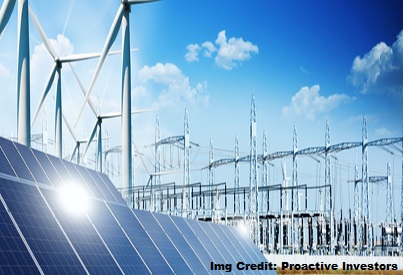Microsoft and Qcells establish a groundbreaking partnership in the field of solar energy

Microsoft has
significantly advanced its commitment to renewable energy on January 9, 2024,
through a strategic collaboration with South Korea's Qcells. This partnership
holds substantial significance for the green energy sector, with both entities
poised to play pivotal roles in shaping a more environmentally sustainable
future.
Details
about the Partnership
- Supply Deal: Qcells, a subsidiary of Hanwha
Solutions, is set to provide Microsoft with 12 gigawatts of domestically
manufactured solar panels until 2032, marking one of the most substantial
commitments in the green energy sector.
- Microsoft’s Strategic Approach: Microsoft views this agreement as
a prudent measure to mitigate supply risks and achieve its goal of relying
solely on renewable energy for operational needs by 2025.
- Sustainability Objectives: Microsoft is furthering its
environmental commitment by striving to reduce its carbon footprint,
practice responsible water usage, and achieve waste elimination by 2030.
Impact on
Solar Energy Supply Chain
- US Solar Development: In a bid to rival China's dominant
position in the market, Qcells aims to establish a comprehensive solar
supply chain within the United States. While the current trend involves
predominantly utilizing components from Asia, Qcells seeks to diversify
this landscape with the backing of President Biden's Inflation Reduction
Act.
- Factory and Money Plans: At the core of this initiative is
Qcells' recently constructed facility in Cartersville, Georgia, with a
price tag of USD 2.5 billion and scheduled to commence production in late
2024. The facility is set to manufacture a comprehensive range of products,
encompassing silicon ingots to solar modules.
- Hanwha Solutions’ Backing: In April of the previous year,
Hanwha Solutions injected USD 200 million into this undertaking, providing
significant support to Qcells' objective of revitalizing solar
manufacturing in the United States.
Commitment
to Environmental Sustainability
- Significant Manufacturing and
Services: Qcells
is poised to deliver 1.5GW of solar panels annually to Microsoft until
2032 under a comprehensive agreement encompassing a wide range of
services, including engineering, procurement, and construction.
- Sustainable Manufacturing: Both firms are dedicated to
producing environmentally friendly solar modules, underscoring their
strong commitment to environmental stewardship.
Benefits of
Partnership
- Boost to the Local Economy: The establishment of Qcells' new
factory in Georgia is anticipated to significantly benefit the local
economy by generating employment opportunities and driving technological
advancements in the green energy sector.
- Effects of Policies and
Environmental Initiatives: This
collaborative endeavor underscores the effectiveness of measures such as
the Inflation Reduction Act in steering industries toward more sustainable
practices. It demonstrates the pivotal role of government actions in
transitioning towards an environmentally conscious economy.
- Global Role Model: Observing this partnership has the
potential to inspire other businesses and nations to follow suit,
fostering the expansion of renewable energy adoption worldwide.
The
collaboration between Microsoft and Qcells marks a significant advancement in
the realm of clean energy, underscoring the commitment of these industry
leaders to environmental stewardship. Furthermore, it is reshaping the global
approach to solar power provision.